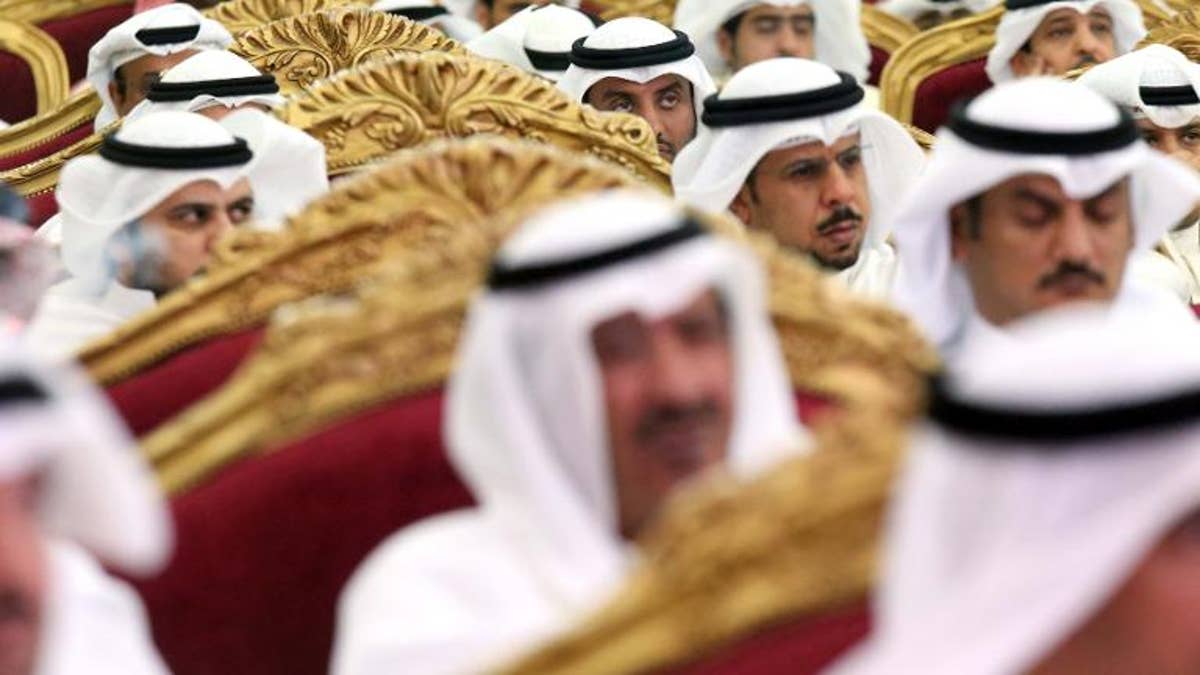
Kuwaitis attend an electoral campaign gathering in Kuwait City on July 24, 2013 (AFP/File)
KUWAIT CITY (AFP) – The International Monetary Fund has urged oil-rich Kuwait to contain public spending, which has trebled in seven years, to avoid risks from a drop in crude prices.
The IMF also urged the Gulf state to speed up structural reforms, put back on track a $110 billion (81 billion euros) development plan that is lagging behind schedule and cut public subsidies.
"Reflecting the recent sharp increases in current expenditures and relatively small non-oil revenues, government expenditure in the baseline would exceed oil revenues by 2017/18, thus increasing the fiscal risk from a sustained drop in oil prices," said a report released late Monday.
Most of the sharp rise in spending was to finance increases in public wages and subsidies while capital spending continued to account for a small portion of public expenditure.
According to official figures from the finance ministry, between the fiscal years 2005/2006 and 2012/2013, public spending rose from $24.4 billion to $68.2 billion, during which government wages rose from $6.7 billion to $17 billion.
In the same period, oil income, which makes up around 95 percent of public revenues, rose from $45.9 billion to $106 billion.
High oil prices have benefited Kuwait by generating high fiscal and external current account surpluses, the IMF said.
The country's gross domestic product is forecast to grow by just 0.8 percent in real terms in 2013, down from 6.2 percent last year, mainly because of a two-percent contraction in oil GDP.
Non-oil GDP is projected to grow by 3.0 percent this year, the IMF said.
Kuwait has boasted a budget surplus in each of the past 13 fiscal years, accumulating around $300 billion, whereas the size of its sovereign wealth fund has increased to over $400 billion.
But recent domestic political tensions have had an adverse impact on fiscal and economic affairs.
The implementation of the 2011-2014 Development Plan, a public investment programme, has lagged behind, the IMF said.
Kuwait has been hit by a chronic political crisis since 2006.
Parliament has been dissolved on six occasions and the cabinet has resigned nearly a dozen times.
Nominal GDP rose to $184.5 billion last year from $160.7 billion in 2011, said the IMF, which expected it to grow slightly this year and the next.
